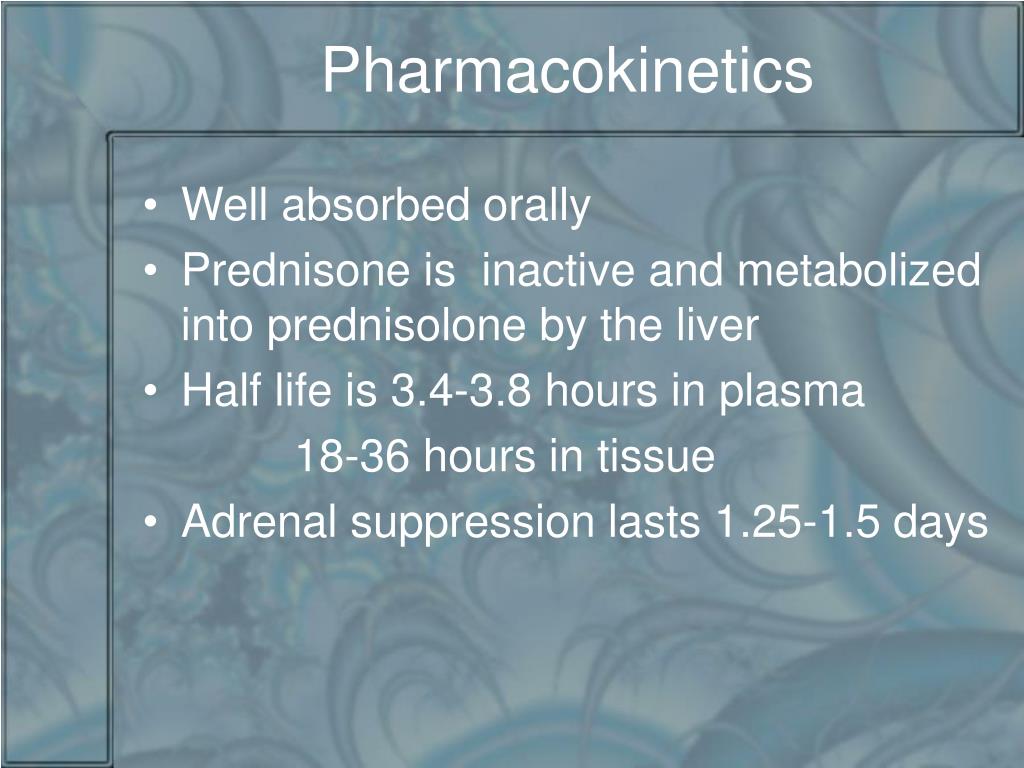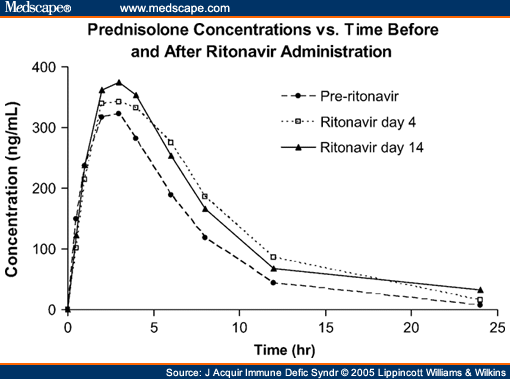
19-23 Some of these trials were stopped early due to under-enrollment following the release of the results from the RECOVERY trial. Various formulations of systemic corticosteroids used in different doses for varying durations have been studied in patients with COVID-19 in several smaller randomized controlled trials. Systemic corticosteroids used in combination with other agents including antivirals and immunomodulators, such as tocilizumab (see Interleukin-6 Inhibitors) 16,17 or baricitinib (see Kinase Inhibitors), 18 have demonstrated clinical benefit in subsets of hospitalized patients with COVID-19.
#Prednisone half life trial
Details of the RECOVERY trial are summarized in Table 4d.

No benefit of dexamethasone was seen in patients who did not require supplemental oxygen at enrollment. 15 This mortality benefit was observed in patients who were mechanically ventilated or required supplemental oxygen at enrollment. Mortality at Day 28 was lower among the patients who received dexamethasone than among those who received the standard of care alone.
#Prednisone half life plus
This large, multicenter, open-label randomized controlled trial performed in the United Kingdom randomized 6,425 hospitalized patients to receive up to 10 days of dexamethasone plus the standard of care or the standard of care only. The Panel’s recommendations on the use of corticosteroids for COVID-19 in hospitalized patients are largely based on data from the RECOVERY trial. Moreover, the use of corticosteroids can lead to adverse events (e.g., hyperglycemia, neuropsychiatric symptoms, secondary infections), which may be difficult to detect and monitor in an outpatient setting (see Therapeutic Management of Nonhospitalized Adults With COVID-19). Because nonhospitalized patients were not included in the RECOVERY trial, the safety and efficacy of corticosteroid use for COVID-19 in this population have not been established. In the RECOVERY trial (described below), dexamethasone was shown to reduce mortality in hospitalized patients with COVID-19 who required supplemental oxygen however, treatment with dexamethasone was stopped at the time of hospital discharge. The Panel’s recommendations on the use of corticosteroids for COVID-19 in nonhospitalized patients reflect a lack of data regarding their use in this population.

2,3 In patients with severe pneumonia caused by influenza viruses, corticosteroid therapy appears to result in worse clinical outcomes, including secondary bacterial infections and death. 1 However, during outbreaks of previous novel coronavirus infections (i.e., Middle East respiratory syndrome and severe acute respiratory syndrome ), corticosteroid therapy was associated with delayed virus clearance. In patients with Pneumocystis jirovecii pneumonia and hypoxemia, prednisone therapy reduced the risk of death. It has been proposed that the potent anti-inflammatory effects of corticosteroids might prevent or mitigate these deleterious effects.īoth beneficial and deleterious clinical outcomes have been reported with use of corticosteroids (mostly prednisone or methylprednisolone) in patients with pulmonary infections. Patients with severe COVID-19 can develop a systemic inflammatory response that can lead to lung injury and multisystem organ dysfunction.


 0 kommentar(er)
0 kommentar(er)
